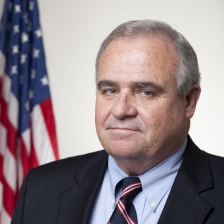
GSA to set up new training program to help appointees be better managers
The General Services Administration’s releases a solicitation for a vendor to set up a political appointee orientation program. The National Academy of Public...
One of the biggest missing pieces to the presidential transition is the ability to train and provide continuous education for political appointees. Many times these government newbies come in with little or no executive branch knowledge, and either step in policy or regulatory potholes, or take six months or more to learn how the system works.
This is why the General Services Administration is spending $1 million for a new training program for political appointees.
GSA released a request for quote on Nov. 14 through its Mission Oriented Business Integrated Services (MOBIS) schedule for a vendor to “provide valuable information, resources and insights to help key appointees succeed in their positions, with a strong focus on collaborative, effective and accountable leadership and management.”
Bids are due Dec. 8.
In the RFQ, which Federal News Radio obtained, GSA detailed a three-phased approach to training incoming appointees.
Phase 1 would happen before inauguration for about 500 cabinet level appointees and senior White House staff. The training sessions would “focus on achievement of the programmatic priorities, emphasizing such key themes as: teamwork, collaboration among departments and agencies, strategies for outreach and public engagement, effective management in the federal government, and accountability for measurable progress and results. Operational principles and practices, including the roles of White House staff, cabinet level and sub-cabinet appointees, information flow, Presidential decision process, and accountability mechanisms will also be discussed.”
Phases 2 and 3 would be for the remaining 3,500 political or Schedule C appointees and happen after the inauguration for appointees as designated by the President-Elect in any of the tiers identified whether or not requiring Senate confirmation, including sub-cabinet level in the Executive Office of the President, departments and agencies, SES and Schedule C appointees that are not otherwise covered by Office of Personnel Management (OPM) orientation activities for SESs and Schedule C employees.
Among the areas the orientation program should address are:
- Accountable leadership with a focus on collaboration and management
- What to expect from the Senate confirmation process
- Oversight and accountability from the Government Accountability Office and agency inspector generals community
- Building productive relationships with Congress
- Communication and technology, including understanding legacy systems and the requirement for building on to or replacing current platforms
The Presidential Transitions Acts of 1963, 2000 and 2010 all authorize this appointee orientation program.
Experts say having such a program is one way to ensure executives are ready to manage.
Ed DeSeve, a fellow with the National Academy of Public Administration, an executive in residence at the Brookings Institution and a former political appointee under Presidents Bill Clinton and Barack Obama, said traditionally there hasn’t been an ability of new appointees to receive training on a continuous basis.
“The new administration should take advantage of the resources that you have, and there are some resources out there, to provide a continuous learning environment for the appointees coming in and cause that to happen as well with their Senior Executive Service (SES) counterparts,” DeSeve said in an interview with Federal News Radio at NAPA’s annual fall conference in Arlington, Virginia on Nov. 17. “The second is for them to think networks, always think about how to connect the organizations that need to be working together as a normal part, almost a default response, to get something done. If you pre-position your network, if you have it ready to go when something bad happens, you are more able to solve the problem.”
David Chu, a NAPA fellow, the president of the Institute for Defense Analyses and a former Defense Department Undersecretary of Defense for Personnel and Readiness, said cross-agency collaboration is another important factor that shouldn’t be overlooked.
“There are too few opportunities for sub-cabinet officers to work together across their boundaries,” he said. “When you have these councils and committee structures, that I know sometimes people find a little off-putting about governmental efforts, they can be very helpful in forcing cabinet agencies that may not cooperate together to improve their game together.”
Chu and DeSeve led NAPA’s effort to create a list of the top 40 most important management jobs across government. Chu said NAPA didn’t include any policy related positions because getting the right people for management roles is too often overlooked.
“Without that person being effective, that agency may have all the wonderful agencies in the world and it’s likely to crump, particularly likely to crump when a crisis emerges when you have to rearrange the pieces in order to make things more effective,” he said.
The list is broken down by positions that are governmentwide, held by deputy secretaries, managing infrastructure, information or resources, those that are in the national security and homeland security arena and those in the health, education and income security agencies. DeSeve said the group whittled down the initial list of 1,200 positions to about 200, and then took a hard look at the scope and impact of the positions.
Chu said the list and associated job descriptions are part of the larger effort NAPA is emphasizing during the presidential transition.
“Management really matters,” he said. “Every administration, this is no-political and bi-partisan in its unfortunate story, has suffered a major breakdown in terms of a key policy. Katrina was the symbol for the Bush 43 administration. The Affordable Care Act computer system was the symbol for the Obama administration. You lose the confidence of the public when that occurs.”
Chu said because of the challenges and potential for a real crisis it matters who the administration appoints as managers.
“They should be people who have demonstrated by their prior success and the lessons they’ve learned from the things they learned that didn’t go quite so well in their careers that they can scope with the size and scale of federal efforts,” he said. “It’s easy to underestimate how vast is the effect of the modern American government and therefore how important it is that the management aspect be performed well.”
DeSeve said the managers also should be skilled in understanding how to make change quickly.
“If I had a wish, I would wish I could sit down with David and Mark Abrahamson, who was instrumental in putting the list together, along with the head of Presidential Personnel and talk about the screening criteria that we used and perhaps they should use as they bring people in to these jobs and other similar jobs,” he said.
Chu added too often administrations and the media are too focused on who are the cabinet officer. But he said that should be the first answer, but the broader discussion needs to be about the team in each agency and how are those different people going to function well together.
Read the latest news about the incoming administration on our Tracking the Transition page.
Copyright © 2025 Federal News Network. All rights reserved. This website is not intended for users located within the European Economic Area.
Jason Miller is executive editor of Federal News Network and directs news coverage on the people, policy and programs of the federal government.
Follow @jmillerWFED





